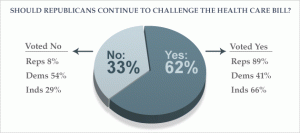
President Barack Obama made a surprise trip to Afghanistan to visit with American troops and Afghan President Hamid Karzai
President Barack Obama did an excellent job of firing up the troops and praising the American mission to crush Al-Queda in Afghanistan and elsewhere during his speech today at Bagram Air Force Base in Afghanistan. It is indeed a pleasant experience to see the President articulate a strong American will to fight and win the war on terror. Obama did repeat four or five times that he would “never” put American troops in “harm’s way” unless it was “absolutely necessary”, which appeared to be an unnecessary slap at former President George W. Bush and the now-successful mission in Iraq, which of course Obama did not consider “absolutely necessary.”
Obama also properly pointed toward the 9/11 attacks as the motivating force behind the American mission in Afghanistan, and the President deserves credit for strongly stating these pro-American positions in front of our nation’s troops in Afghanistan and for saying “thank you” on behalf of Americans to our troops.
However, the President made a curious comment, starting at about the 11:20 mark on the this video of his speech today, about how the America “does not quit once it starts on something“:
“We face a determined enemy, but we also know this. The United States of America does not quit once it starts on something. You don’t quit, the American armed services does not quit, we keep at it, we persevere, and together with our partners, we will prevail, I am absolutely confident of that.”
Obama here sounds an awful lot like President George W. Bush in 2006, 2007 and 2008 when discussing the need to “stay the course” and win the war in Iraq. Indeed, Obama’s comment about how America “does not quit” once the country engages in a battle overseas is quite jarring when compared to candidate Obama’s campaigning throughout America for two years calling for a quick withdrawal from Iraq without a military victory there over Al-Queda and the insurgents. Here is a portion of Obama’s January 2007 speech, which kicked off his campaign for President, advocating a military withdrawal from Iraq by March 2008, which of course did not occur:
But all of this cannot come to pass until we bring an end to this war in Iraq. Most of you know I opposed this war from the start. I thought it was a tragic mistake. Today we grieve for the families who have lost loved ones, the hearts that have been broken, and the young lives that could have been. America, it’s time to start bringing our troops home. It’s time to admit that no amount of American lives can resolve the political disagreement that lies at the heart of someone else’s civil war. That’s why I have a plan that will bring our combat troops home by March of 2008. Letting the Iraqis know that we will not be there forever is our last, best hope to pressure the Sunni and Shia to come to the table and find peace.
Obama also famously stated in 2007 that the Bush surge would not work and would instead by counterproductive, which, of course, was a mistaken view that Obama pushed for years across the country campaigning for President:
I am not persuaded that 20,000 additional troops in Iraq is going to solve the sectarian violence there. In fact, I think it will do the reverse.
Ironically, despite his above-referenced political attacks in 2007-8 upon President Bush for ordering the surge and his active opposition to then-President Bush’s surge plan, today Obama stated that while “politics at home may look a little messy” there is “no daylight [between Democrats and Republicans] when it comes to support of all of you” and “no daylight when it comes to supporting our troops“. While these sentiments are indeed correct, the GOP strongly supports the Afghanistani mission to eliminate the Al-Queda threat, his comments today are quite jarring when compared to the President’s own actions and statements in 2007 where he created a giant shaft of daylight between himself and President Bush regarding the American troops in the field in Iraq at the time.

